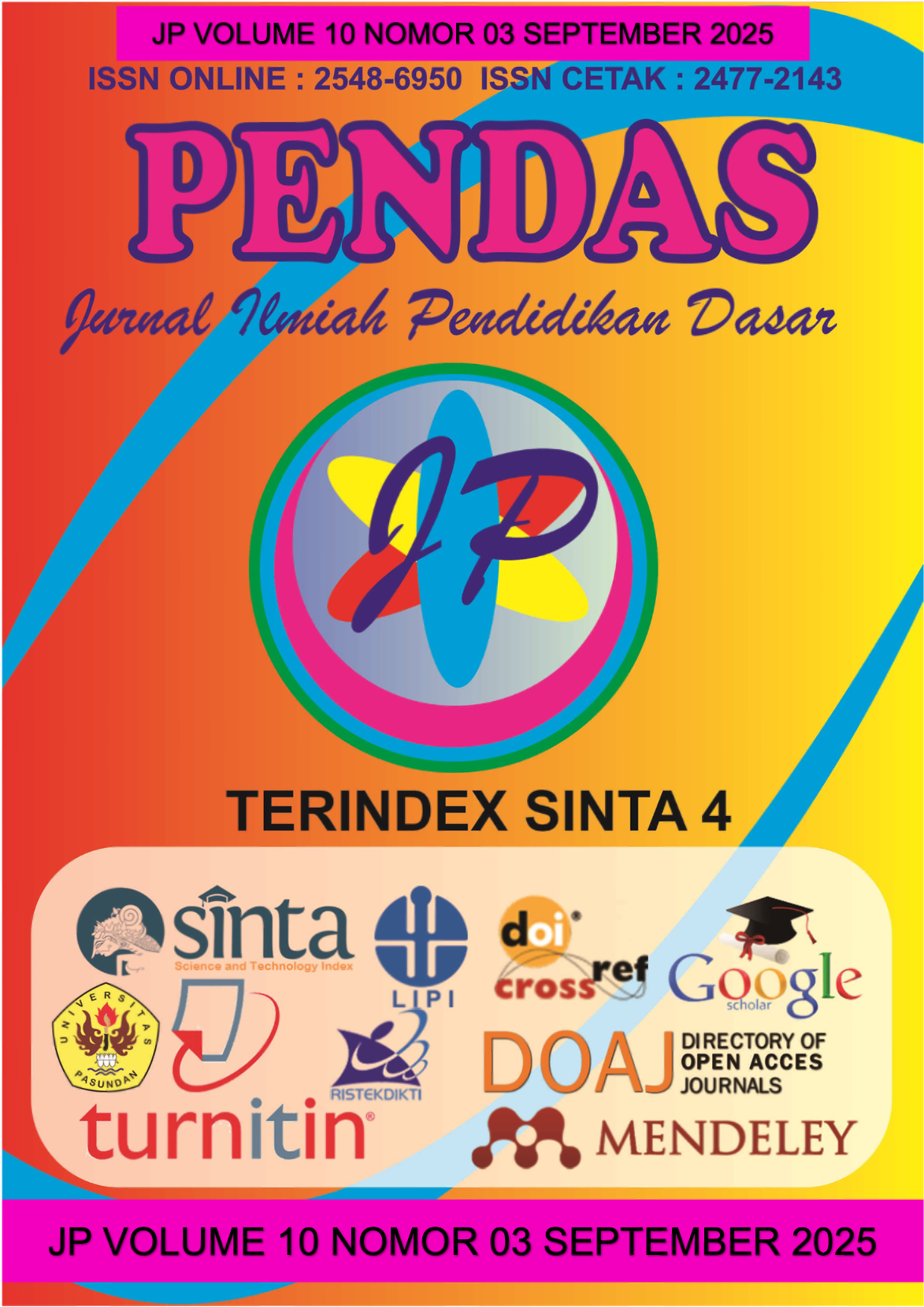PERAN KELUARGA DALAM INTERLISASI NILAI-NILAI ISLAM PADA ANAK USIA DINI DI DESA TALA-TALA, KABUPATEN PANGKEP
DOI:
https://doi.org/10.23969/jp.v10i03.31425Keywords:
Role of Family, Islamic Values, Early ChildhoodAbstract
This study examines the role of families in the internalization of Islamic values in
early childhood in Tala-Tala Village, Pangkep Regency. The purpose of this study
was to determine family strategies in instilling Islamic values and the inhibiting and
supporting factors in this process. Using a qualitative method with a case study
approach, this study gathered in-depth information about phenomena occurring in
specific contexts. The results showed that parental strategies in instilling Islamic
values include role models in daily life, where children are accustomed to imitating
their parents' positive behavior. In addition, parents also teach through storytelling
about Islamic teachings and provide appreciation for children's good behavior.
Habitual positive activities, such as congregational prayer and fasting, and creating
an Islamic environment by instilling honesty and patience, are also part of this
strategy. Inhibiting factors include parents' understanding of Islam and their lack of
time spent with their children. Supporting factors include parental role models and a
supportive environment. Thus, this study emphasizes the importance of the active
role of parents and the environment in shaping Islamic values in early childhood.
Downloads
References
Adi, La. 2022. “Pendidikan Keluarga
Dalam Perspektif Islam.” Jurnal
Pendidikan Ar-Rasyid 7(1):1–9.
https://www.journal.staisyarifmuh
ammad.ac.id/index.php/jp/article/
view/11.
Azmah, Arhaya Umil, Dea Melfiana
Putri, Adrias Adrias, and Fadila
Suciana. 2025. “Literatur Review:
Pengaruh Lingkungan Keluarga
Terhadap Kemampuan
Berbahasa Siswa Di Sekolah
Dasar (SD).” Pragmatik: Jurnal
Rumpun Ilmu Bahasa Dan
Pendidikan 3(2):125–31. doi:
https://doi.org/10.61132/pragmati
k.v3i2.1582.
Dewi, Almira. 2022. “Kerjasama Guru
Dan Orang Tua Dalam
Menanamkan Akhlak Anak.”
Journal of Educational Research
1(1):41–60. doi:
https://doi.org/10.56436/jer.v1i1.
5.
Efendi, Pitri Maharani, Tatang
Muhtar, and Yusuf Tri
Herlambang. 2023. “Relevansi
Kurikulum Merdeka Dengan
Konsepsi Ki Hadjar Dewantara:
Studi Kritis Dalam Perspektif
Filosofis-Pedagogis.” Jurnal
Elementaria Edukasia 6(2):548–
61. doi:
https://doi.org/10.31949/jee.v6i2.
5487.
Fadhilah, Naylatul, Aini Yusra Usriadi,
and Gusmaneli Gusmaneli.
2025. “Peran Pendidikan Islam
Sebagai Solusi Krisis Moral
Generasi Z Di Era Globalisasi
Digital.” Jurnal Manajemen Dan
Pendidikan Agama Islam
3(3):230–37. doi:
https://doi.org/10.61132/jmpai.v3i
3.1119.
Fadillah, R. 2020. “Pengaruh
Keteladanan Orangtua Dalam
Internalisasi Nilai-Nilai Islam
Pada Anak Usia Dini.” Jurnal
Pendidikan Islam Anak Usia Dini
3(2):75–38.
Hardiansyah, Framz, Fajar Budiyono,
and Agus Wahdian. 2021.
“Penerapan Nilai-Nilai
Ketuhanan Melalui Pembiasaan
Di Sekolah Dasar.” Jurnal
Basicedu 5(6):6318–29. doi:
https://doi.org/10.31004/basicedu
.v5i6.1762.
Indonesia, Republik. 2018. Undang-
Undang RI Nomor 20 Tahun
2003 Tentang Sistem Pendidikan
Nasional. Surabaya: Kresna Bina
Insan Prima.
Downloads
Published
Issue
Section
License
Copyright (c) 2025 Pendas : Jurnal Ilmiah Pendidikan Dasar

This work is licensed under a Creative Commons Attribution 4.0 International License.














































